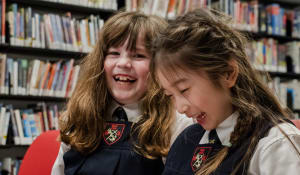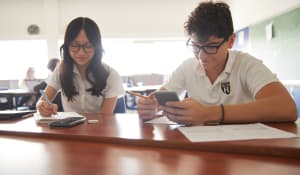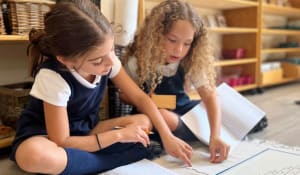Children use computers to be playful—to experiment with words, music and video. These activities can be artistically and emotionally satisfying. But students need more to be responsible citizens in the culture of simulation. Instead of teaching them about the nature of simulation, we have been content to teach them how to use simple "tools"—word processing, spreadsheets and photograph manipulation, to name only a few. Full citizenship demands critical thinking. There is not an "app" for that. There is not a shortcut.
Another kind of skill needed for critical thinking is the ability to concentrate and focus on a problem. Sadly, today's students are often too busy communicating to think, connect, create or innovate. They have grown up in a communications culture in which superficially connecting with others through text messages, Facebook status updates and online games is too often used as a substitute for reflection. To put it too simply, you could call it: "I share therefore I am." They have moved from a position in which one says, "I have a feeling, I want to make a call" to "I want to have a feeling, I need to send a text or post a Facebook status update." In this way of thinking, one validates a thought or feeling before one has confidence in them. So, a young person has an idea, texts it, and if encouraged, continues on. If discouraged, it gets dropped. One danger here is that we come to be dependent on other people to feel "whole." We don't feel in touch with ourselves without their validation. In these ways, digital technology has also had an effect on the context in which we develop social and communication skills.
Q: What are the challenges for students in acquiring these key skills, and how can they be overcome?
A: There is no cause to cast aside our technologies. They are our partners in the human adventure. But sometimes they can get in the way of the developmental tasks that young people need to accomplish to be the thinking and feeling people they need to become.
Most recently, young people have gotten so used to digital connection that they experience tremendous anxieties of disconnection. But if we never teach our children to be alone, they will only know how to be lonely. We are not helping children develop the capacity for the kind of solitude that refreshes and restores.
Schools and families need to create "sacred spaces" that are free of digital connection. Young people are becoming genuinely phobic about speaking on the phone, about the pressures of face-to-face meeting, about not being able to turn, at an awkward moment, to the solace of their devices. We built these devices to enhance us, cognitively and socially. And in so many ways they have. But we are left at a place where a line of Shakespeare comes to mind. I paraphrase by saying that we are consumed by that which once nourished us. It would be a tragedy if we left our children in this place.





















